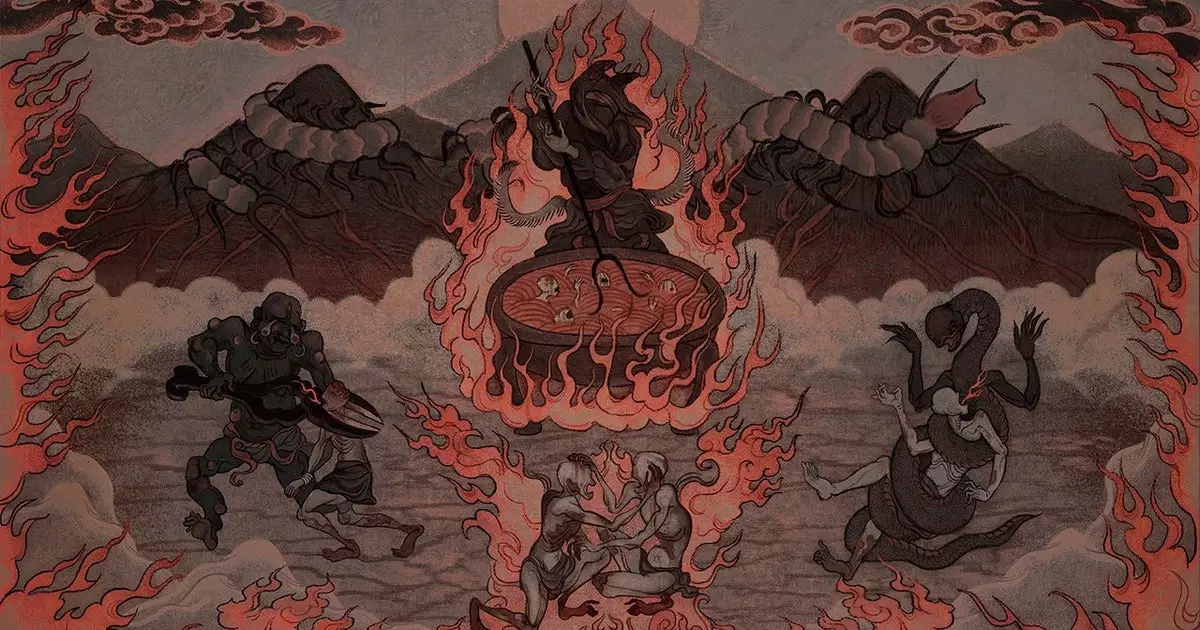The recent release of *Labyrinth Of The Demon King* has sparked conversations that dive deep into the realm of survival horror gaming. It’s a title that evokes an enticing yet treacherous interplay of elements drawn from classics like *Silent Hill* and *Amnesia: The Dark Descent*. Players are thrust into a grotesque world where fear merges with frustration, creating a tense atmosphere reminiscent of the early days of horror narratives, yet fortified with its own grim flavor. Through clunky mechanics and a palpable sense of despair, the game delivers an experience that is as disorienting as it is compelling.
Set against a backdrop of mythical feudal Japan, a period not often explored in modern gaming, *Labyrinth Of The Demon King* serves as a haunting reminder that not all was serene in ancient times. The setting became an invisible character in its own right, influencing gameplay mechanics and narrative progression. The player’s main objective is stark and menacing: assassinate a yokai that orchestrated the downfall of a lord. Yet this mission is overshadowed by a sense of futility; with each step taken, it’s almost as if the very world conspires against the player, creating an oppressive cycle of tension.
A Chaotic Cast of Encounters
As players navigate through environments teeming with grotesque enemies and a grotesque aesthetic, they encounter the bizarre inhabitants of this world: the “filthbastards,” grotesque entities that personify chaos. They are not merely adversaries but a reflection of the protagonist’s turmoil. These creatures, with their exaggerated forms and unrelenting hostility, elevate the stakes with every encounter. The mechanics at play—stamina-based combat reminiscent of From Software’s old RPGs—demand a type of engagement that rewards patience over brute force. However, that’s not to say the game does not test your limits; managing stamina while contending with monstrous foes is a jarring experience, one that signals both exhilaration and exasperation.
Players find themselves armed with only a handful of items that simultaneously aid and hinder progress. A broken katana, bandages promising little solace, and an unpredictable bottle of sake create constraints that add depth to gameplay. The choice to focus on kicking enemies or scavenging for items raises questions about player agency and the often arduous path to survival. The need to reclaim and recycle usable items is paramount, effectively weaving an intricate tapestry of resource management into the horrors of the game. Each item collected holds potential, but their various levels of deterioration can lead to moments of sheer desperation.
The Art of Atmosphere and Immersion
What truly sets *Labyrinth Of The Demon King* apart is its atmosphere, a lovecraftian blend of fear and nostalgia. The visual and auditory design harks back to the era of PS1 games—pixelated graphics and lingering shadows create a disquieting sense of isolation. It’s atmospheric finesse dictates a slower pace, an agonizing juxtaposition against the urgency of survival. Each detail, from the eerie soundscape to the disorienting camera angles, serves to evoke a sense of dread; players constantly feel the threat of the world around them.
Playing this game is akin to looking through a foggy lens of anxiety—there’s an unmistakable brilliance in how the developers have captured the essence of early survival horror. The slow, trepidatious navigation through the environment becomes a form of performance art; each slight movement and every whispered encounter is orchestrated to elicit both tension and reluctance. The presence of locked doors and an ever-loose grip on progress means that revisiting locations becomes inevitable—a call back to the haunting roots of horror gaming.
The Embrace of Absurdity
Ultimately, *Labyrinth Of The Demon King* thrives on its ability to be unapologetically bizarre. While many contemporary games seclude themselves within the safety of well-established design principles, this game takes a different route, inviting players to embrace chaos and uncertainty. It holds a mirror up to the player’s own fears and limitations while crafting an experience that is as uncomfortable as it is gripping. It demands not only skill but a psychological readiness to face what lies hidden in the dark.
As players grapple with the elements of the game, the essence of survival horror becomes eerily palpable. The weight of every encounter hangs heavy, leading us to question the very nature of determination within a hostile realm. Therefore, *Labyrinth Of The Demon King* not only succeeds as a survival horror; it solidifies the genre’s enduring ability to challenge and terrify, leaving us pondering what horror truly means in a tangled web of existential dread.

